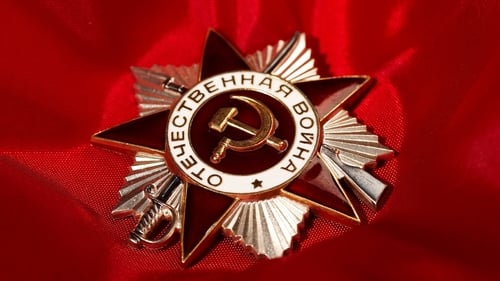
Семенов

Zhdanov
"Iskra" is the codename for the plan of the operation of the Soviet troops to break the blockade of Leningrad. In January 1943, the blockade of Leningrad was broken. A corridor 8-11 km wide was formed between Lake Ladoga and the front line.

Zhdanov
A story about the tragic events in the life of besieged Leningrad from September 1941 to January 1943.

Andrey Alexandrovich Zhdanov
Autumn 1941. German tank troops are making another attempt to break through to the Uritsk and Pulkovo Heights.
During heavy fighting, Soviet troops managed to stop the offensive of fascist tanks one and a half kilometers south of the Pulkovo Observatory. The 900 days of the blockade and the incredible courage of the Soviet people were approaching ...

Zhdanov
In June 1941, the Extraordinary Defense Headquarters of Leningrad, under the leadership of Zhdanov and Voroshilov, decided to build the Luga defensive line. Heavy fighting west of Pskov forced units of the front to withdraw, and on July 9, Pskov was also abandoned. The battles in the Luga direction held back the enemy. The first attacks of the Germans, intending to cross the Luga line on the move, were repulsed with heavy losses for them.

Gen. Vatutin
Parte 1 e Parte 2

Gen. Vatutin
A grandiose military film epic, which does not know analogues in world cinema: the history of the Great Patriotic War from the Battle of the Kursk Bulge to the installation of the Banner of Victory over the Reichstag - "Liberation".

Gen. Vatutin
O trabalho mais famoso do diretor de cinema russo Yuri Ozerov é o épico Osvobozhdenie (A Libertação) sobre a WWII, feito em cinco partes e 470 minutos, que foi muito popular em seu país. Cada uma das duas primeiras partes foi visto por 56 milhões de pessoas. Osvobozhdenie (1967-1971), seu maior sucesso, foi notável não só por suas impressionantes cenas de batalha, mas também por sua tentativa de mostrar a guerra pela perspectiva dos soldados russos comuns. 1 O Arco de Fogo 2 O Avanço 3 Rumo ao Golpe Principal (parte 1) 3 Rumo ao Golpe Principal (parte 2) 4 A Batalha por Berlim 5 O Ataque Final

Council of Ministers Worker
In 1960, in Moscow, numerous cases of infection with purple pox were recorded. According to doctors, the virus came from eastern countries. In order not to create panic among the population, they tried to hide the fact of the epidemic. Doctors tried to cope with the disease, but the number of deaths increased, and information inexorably leaked into society ...






